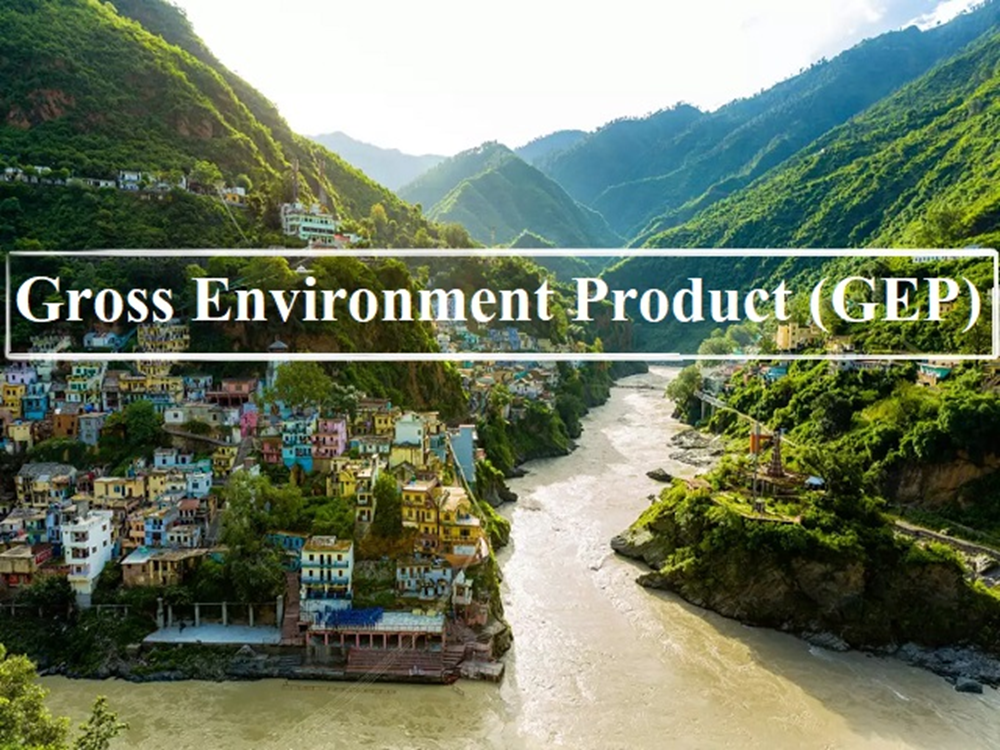- Courses
- GS Full Course 1 Year
- GS Full Course 2 Year
- GS Full Course 3 Year
- GS Full Course Till Selection
- Answer Alpha: Mains 2025 Mentorship
- MEP (Mains Enrichment Programme) Data, Facts
- Essay Target – 150+ Marks
- Online Program
- GS Recorded Course
- Polity
- Geography
- Economy
- Ancient, Medieval and Art & Culture AMAC
- Modern India, Post Independence & World History
- Environment
- Governance
- Science & Technology
- International Relations and Internal Security
- Disaster Management
- Ethics
- NCERT Current Affairs
- Indian Society and Social Issue
- NCERT- Science and Technology
- NCERT - Geography
- NCERT - Ancient History
- NCERT- World History
- NCERT Modern History
- CSAT
- 5 LAYERED ARJUNA Mentorship
- Public Administration Optional
- ABOUT US
- OUR TOPPERS
- TEST SERIES
- FREE STUDY MATERIAL
- VIDEOS
- CONTACT US
Uttarakhand Launches Gross Environment Product Index
Uttarakhand Launches Gross Environment Product Index
21-08-2024

Uttarakhand has introduced the Gross Environment Product (GEP) Index, becoming the first place in the world to measure both the benefits we get from the environment and what we contribute back to it. This new index helps track eco-conservation efforts more comprehensively.
Key Points:
-
What is the GEP Index?
- Purpose: Measures how human activities affect the environment, not just what we take from it but also what we add to it.
- Components: Looks at 4 main areas—air, soil, water, and trees.
-
How Does It Work?
- Formula: GEP Index = (Air-GEP Index + Water-GEP Index + Soil-GEP Index + Forest-GEP Index).
- Forest Measurement: Counts the new trees planted, their types (e.g., broad-leafed vs. pine), and their survival rates. It also subtracts the number of trees cut down.
- Water Assessment: Measures human efforts in water conservation, like building water reservoirs, and compares this with natural water recharge (e.g., rainfall).
- Soil and Air Quality: Evaluates improvements in soil health and air quality.
-
Reactions to the GEP Index:
- Support: Anil Prakash Joshi, who helped create the index, aimed to make it as clear as calculating Gross Domestic Product (GDP).
- Criticism: Some experts, like Hemant Dhyani from the Ganga Avahan movement, worry that the index might oversimplify complex environmental issues and could justify harmful activities if human contributions are valued too highly.
- Academic Opinion: Vir Singh, a professor, finds the GEP useful for understanding how ecosystems contribute to the economy and well-being but suggests it may need more refinement.
-
Current Status and Future:
- Support: The GEP Index has the backing of Uttarakhand Chief Minister.
- Challenges: There are concerns about how the GEP will work on a larger scale and whether the methods used to calculate it are scientifically sound.
-
About the GEP Index:
- Definition: A new measure to evaluate the positive and negative impacts of human activities on the environment.
- Components: Includes assessments of air, water, soil, and forest health.
- Importance: Helps understand how well we are improving or damaging our environment and encourages better eco-friendly practices.
-
What is Anthropology?
- Definition: The study of humans, including their biological traits, history, and cultural practices.
Conclusion:
The Gross Environment Product Index is a pioneering approach to environmental measurement. It aims to offer a clearer picture of how human actions affect the environment and promote better conservation practices. However, it also faces challenges and criticisms that need to be addressed for it to be fully effective.
Must Check: Best IAS Coaching In Delhi
UPSC Prelims Result 2024 Out: Expected Cut Off & Other Details, UPSC Prelims 2024 Answer with Explanation, Daily Prelims Quiz, Daily Current Affairs, MONTHLY CURRENT AFFAIRS TOTAL (CAT) MAGAZINE, Best IAS Coaching Institute in Karol Bagh, Best IAS Coaching Institute in Delhi, Daily Mains Question Answer Practice, ENSURE IAS UPSC Toppers, UPSC Toppers Marksheet, Previous Year Interview Questions, UPSC Syllabus




